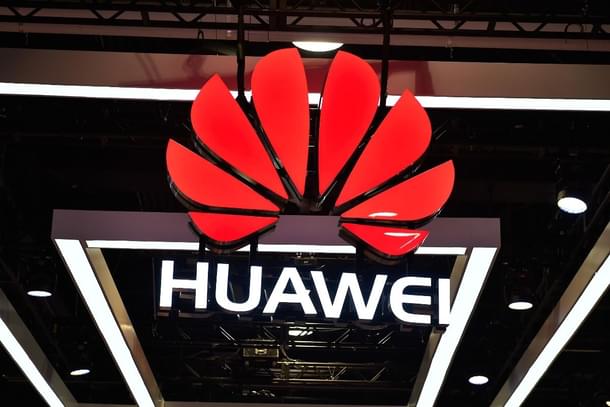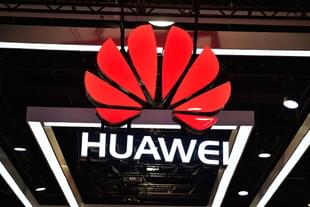News Brief
As Huawei Challenges Sweden's Ban On Its 5G Devices In Court, Beijing Warns Of 'Reciprocal Measures'
Bhaswati Guha Majumder
Jan 31, 2022, 05:25 PM | Updated 05:25 PM IST
Save & read from anywhere!
Bookmark stories for easy access on any device or the Swarajya app.


Chinese telecom giant Huawei Technologies Co. announced on 30 January that it has filed a World Bank Group arbitration case against Sweden after the Nordic government barred the company from deploying its 5G devices.
Huawei is a global telecom provider and phone manufacturer, and yet, it is still seen as a pariah in some nations, such as the United States.
In recent years, the Chinese manufacturer has come under intense scrutiny, with its phones becoming nearly undetectable in the United States and some European countries prohibiting the use of its technology in their 5G networks.
In 2020, Sweden banned Huawei from its 5G networks and at the same time, the United Kingdom also announced that it will be banning the installation of Huawei 5G equipment starting in 2021 September.
In the same year, India also took steps to lock Huawei along with another Chinese giant ZTE out of its 5G rollout.
Sweden became the second country in Europe, and the first in the European Union, to specifically prohibit network operators from using Huawei equipment in the construction of the infrastructure required to run its 5G network.
It has also ordered Huawei to remove whatever equipment it has already installed by 1 January 2025.
However, now Huawei, has said in a statement after moving court, that the decision by Swedish authorities “to discriminate against Huawei and exclude it from the 5G roll-out has significantly harmed Huawei’s investment in Sweden, in breach of Sweden’s international obligations”.
According to the company, a number of measures taken by the Swedish authorities targeting directly Huawei's investments in Sweden and excluding it from the rollout of 5G network products and services in the country prompted the company to "initiate arbitration proceedings" under the World Bank Group's International Centre for Settlement of Investment Disputes (ICSID).
Huawei did not clarify the number of damages it was seeking, but according to reports, public broadcaster SVT said that the initial amount sought was 5.2 billion Swedish kronor (around $550 million) — however, it might end up being considerably more.
The decision by Sweden’s Post and Telecom Authority soured relations between Sweden and China, with Beijing saying earlier that PTS's decision might have "consequences" for Swedish firms doing business in China.
It was reported earlier that if the European Union bans Huawei from member nations' 5G networks, China may react against European telecom equipment companies Nokia and Ericsson.
The Chinese Ministry of Commerce said that it could consider placing export controls on Sweden’s Ericsson along with Finland's Nokia — which would prevent them from exporting products made in China to other nations.
However, Huawei was expected to become the world’s largest smartphone maker by the end of 2019. But the growth graph began to decline after the company began to face several accusations over the years for its shady business practices, including a claim that Huawei’s products are being used to spy on nations outside China.
In 2018, FBI Director Christopher A. Wray warned against buying Huawei phones, and Pentagon then banned its sales on American military bases. The next year, the British watchdog also warned that products of this company represents significantly increased risk.
Meanwhile, former United States President Donald Trump said that Huawei, along with numerous other Chinese corporations, has been placed on what is known as the Entity List — any company on this list is unable to conduct business with a company based in the United States.
With the US ban in place, Huawei had to entirely rethink how it develops and distributes handsets while other countries, many of which rely on Huawei for wireless networking equipment.
The Huawei ban appears to be in place indefinitely and the business will need to devise a strategy to work around it until further notice.
However, in the case of Europe in particular, an internal assessment by Deutsche Telekom AG — a German telecommunications company — had suggested that if governments prohibit Chinese equipment supplier Huawei on security concerns, Europe would slip behind the United States and China in the race to establish the next generation of wireless networks.





